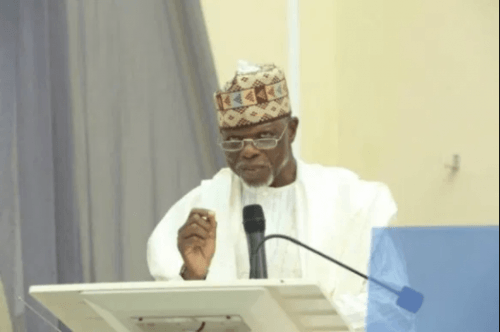
The Comptroller General of Customs, Hameed Ali, has asked journalists to put national interest first and ensure balance reporting in the course of their duty to enhance security and economic growth.
Ali, who stated this in Lagos at a one day seminar organised by the Nigeria Customs Service for journalists on Monday, said the need for responsible journalism cannot be overemphasized given the security challenges being experienced not only in Nigeria but all over the world.
Represented by the Zonal Coordinator, Zone A, Katherine Ekekezie, Ali said given that Nigeria is an import dependent economy, it is imperative that journalists are well informed to properly educate the public on Customs activities.
He said, “It is important to report well and the way it is. Do not report based on one side. The press is the pulse of the nation. If you don’t report it the way it is, the public which you are responsible to will not understand what we are saying. The nation needs to know through us what government is doing in terms of guidelines for importation and Customs procedures.
“We are pleading with the press to join us in telling Nigerians what government says it wants and what it does not want. If we do what government wants, it will be well for us because we all know that the NigeriaN economy depends on importation,” the Customs boss said.
President, African Public Relations Association (APRA), Yomi Badejo, while speaking at the event, tasked journalists on objectivity.
“For Customs to achieve responsible reportage, there must be robust relationship with the media correspondents. Public relation is a potent management tool for everyone that is in a position of leadership, it should not be treated with lip service, it should be brought in at the very beginning.
“Customs activities has to do with securing the nation’s borders, trade facilitation and its function is critical that available information around them is vital, so the need for objective reportage.
“The objective of this seminar is to identify the key facts that propel the reportage of the Nigerian environment bearing in mind it’s security perspective in an effective way,” he said.
Badejo identified lack of data, dearth of modern day media reporting tools and poor remuneration among others as some of the challenges limiting journalists in their work.
He, however, urged journalists to see beyond these challenges and commit themselves to reporting responsibly.
In his remarks, Customs Public Relations Officer, Joseph Attah, said the seminar was organized to help sharpen the knowledge of journalists who report activities of the NCS to be adequately informed with a view to enhancing the economy and national security.
“As an agency of government saddled with the responsibility of implementing government fiscal policies, it is important that those who report our activities understand why we do what we do.
“Customs correspondents should be adequately equipped with in-depth knowledge of the agency they report. This is because the activities of Customs have direct link with the economy and security of the nation. Any wrong narrative can create economic and security consequences on the citizens of the country. Hence, the need to organize this seminar,” he said.